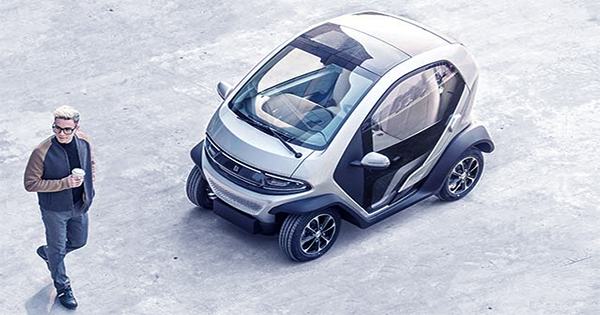Eli Electric Vehicles, a startup that makes mini electric vehicles, has begun production on its flagship Eli Zero, a micro “neighborhood electric vehicle” designed for city travel. The two-seater EV will be distributed in small quantities to wholesalers in 13 European nations over the next several months, with a starting price of $11,999.
Other tiny quadricycles, such as the Renault Twizy, the Citroen Ami, the tilting Triggo EV, and the Squad Mobility solar-assisted automobile, have recently been introduced to the market.
The Eli, like the Twizy, is on the top end of the price scale, with a starting price of roughly $16,000. The Ami car costs roughly $6,000, while the Squad car costs $6,790.
While Eli is based in Los Angeles, its production partner is in China, and the firm is initially pursuing a European approach due to ongoing geopolitical issues. According to Marcus Li, CEO and founder of Eli, the varying legislation in each state on what constitutes a street-legal car makes it challenging to go to market first in the United States. The Zeros are now street legal in Europe, where there is already a culture of smaller, more compact automobiles that don’t move too fast.
“They now have a very stringent legal speed restriction of 30 kilometers per hour (19 mph) in a lot of European cities, for example in Paris, and I think we see that as a trend in European cities like Vienna and Amsterdam,” Li told TechCrunch.
The Zero has a top speed of 25 miles per hour and is made of recyclable polypropylene and high-strength aluminum. It’s about 7 feet long, 4.5 feet broad and 5 feet tall, with a 160-liter capacity. The batteries have a capacity of 5.8 kWh, a 50-mile range, and can charge from 0 to 100% in 2.5 hours at 220 volts.
Power-assisted braking and steering, a rear camera, a parking sensor, and other interior comforts such as a USB charging outlet, cup holders, heating and cooling, a tiltable sunroof, and a 7-inch dashboard display are all included in the micro-vehicle. The standard hues are pearl white and silver, with graphite and baby blue as premium options.
Eli has also just launched an equity crowdfunding campaign on the StartEngine platform. The company had raised $224,705 as of the time of publication of this article, which it will utilize to support future production. Li claims that the company now has more bookings than automobiles, which he considers to be a desirable thing to have.
Eli has previously raised $1.4 million on StartEngine’s platform and has risen over $6.5 million to date. Last year, Li claimed, the firm tried to raise money from venture capitalists, but they only wanted to invest if Eli would utilize its vehicle for car sharing.
“To be honest, we did consider shifting to vehicle sharing at one time because that’s what most institutional investors have told us,” Li added. “In terms of return on investment, their business strategy is a little different from traditional hardware firms, and they would have liked that we go more into a car-sharing and high-value model to see a return three years down the road.”















